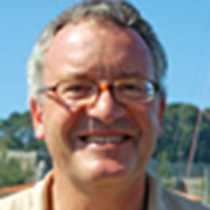So famous was the small Hebridean Island of Iona during the medieval period that it became the burial destination for the kings of Scotland, the Lords of the Isles, and even the kings of Norway. The burial ground beside the abbey is reputed to be the final resting place of Macbeth and Macduff. Iona was revered as the site of Columba’s monastery whence Christianity spread east to the Pictish kingdoms and south to Northumbria. The Anglo-Saxon kingdom of Northumbria was their northernmost and the site where Aidan — Columba’s successor at Iona — established the monastery of Lindisfarne. Columba arrived on Iona in 563 AD and converted the Picts to Christianity, well before Augustine arrived at Canterbury to convert the English. Two rival forms of Christianity coexisted in Britain until the Synod of Whitby in 664 AD, when the practices of Rome superseded those of the Celtic Church.
We sailed early from Oban to Craignure on the isle of Mull, an inner Hebridean Island with some 300 miles of indented coastline. We viewed Craignure en route to Fionnphort, on the island’s westernmost peninsula, from which we took the short ferry ride to Iona. There was time to see the many ecclesiastical sites before lunch at Martyr’s Bay, named for the Viking raid on the monastery in 803 AD, in which sixty-eight monks lost their lives. The famous illuminated gospels composed on Iona were taken to Kells Abbey in Ireland for safety; they are now displayed at Trinity College in Dublin and are some of the most visited objects from the early Christian period.
On our way back from Iona, we made time for a brief visit to Duart Castle, spectacularly situated on the cliffs above the Sound of Mull. Duart is the ancestral home of the Macleans. Some of our guests were lucky enough to enjoy a personal tour of the castle by current Clan Chieftain Sir Lachlan Maclean.
After a long and memorable day, we returned to the ship for dinner. We then had a most informative presentation by the Hebridean Whale and Dolphin Trust; they are based at Tobermory on the Isle of Mull, where our ship came to rest for the night.







